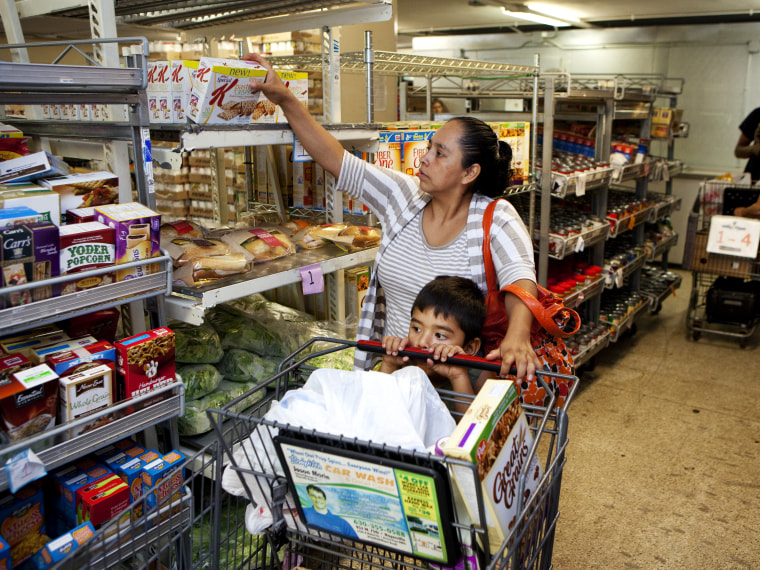The House of Representatives may approve a mammoth cut to the Supplemental Nutrition Assistance Program (SNAP, also known as food stamps) as early as this Thursday. The Nutrition Reform and Work Opportunity Act would cut $39 billion out of SNAP between 2014 and 2023, according to a report from the Congressional Budget Office. If passed, the law is expected to cost 3.8 million people their SNAP eligibility in 2014 alone.
As originally proposed, the House Farm Bill would cut food stamps by $20.5 billion. This legislation—which is seemingly designed to mollify Republican hardliners unsatisfied with a $20.5 billion funding reduction—imposes additional restrictions on eligibility. An amendment proposed by Rep. Dana Rohrabacher, a California Republican, would make the bill's eligibility requirements even harsher by mandating that all SNAP applicants submit to an E-Verify screening.
E-Verify is a government-run program originally built to determine whether job applicants are eligible to work in the United States. Critics say the program is unacceptably error-prone, which can lead citizens or legal immigrants to be mistakenly identified as undocumented immigrants. Only certain kinds of immigrants are currently eligible to receive food stamps, and applicants are already required to verify their immigration status.
A spokesperson for Rohrabacher declined to identify any gaps in the current immigrant screening procedures. "He simply wants to make sure there are no gaps," he said in an email.
A separate amendment proposed by Michigan Democrat Dan Kildee would increase funding to "food incentive programs," which reward SNAP recipients with additional subsidies if they spend their food stamps on healthy food. A similar amendment was proposed to the original House farm bill, but was ultimately rejected. Kildee has also proposed standalone legislation with similar language, called the Local Food for Healthy Families Act.
Kildee has vocally opposed food stamp cuts for months, and he excoriated the Republicans' latest proposal in a statement.
"SNAP is a vital program that helps to combat hunger and help put food on the table for families who find themselves falling on hard times. Republican desires to dismantle government bit-by-bit and deprive the neediest Americans of a basic necessity—food—have completely derailed the Farm Bill process, hurting family farmers and workers," he said.
